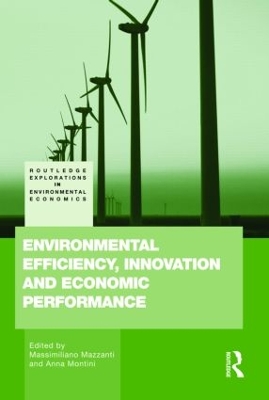Routledge Explorations in Environmental Economics
1 primary work
Book 25
Environmental Efficiency, Innovation and Economic Performances
Eco-innovation is becoming a conceptual reference point for many regional and international public policies and management strategies. This field of research has been focusing on how environmental innovation is particularly related to the intensity of emissions and economic performance. There are two reasons for this growing interest. The first is that environmental performance is one of the main economic policy goals of European countries, thanks to its relevance to the Lisbon Strategy and the Goteborg priorities for sustainable development. The second, which is partly linked to the first, is related to the growing impact of environmental regulation on private sector activity in many European countries.
This volume brings together microeconomics studies on firms’ eco-innovation and economic performance, both in the industrial and service sector, with a sector-based perspective rooted mainly in the exploitation of NAMEA data at regional level, and finally with a macroeconomic analysis of the environment, income and welfare.
This collection brings together the best of recent research in the interlinked areas of eco-innovation and income-environment relationships studies, and in its entirety is an excellent source of knowledge for postgraduates, researchers and students of Environmental and Ecological Economics alike. As well as fully developing the theoretical aspects of its topics, these essays are also strongly policy-oriented and will be of interest to anyone seeking information on an applied perspective.
